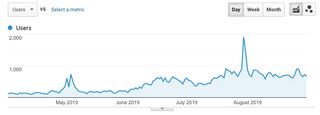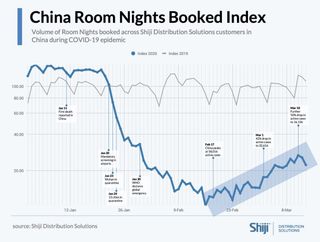Website positioning in times of the Coronavirus pandemic
Date
01.04.20
Type
Articles
Category
Marketing

Due to the current crisis in the tourism industry, many hotels are looking for savings. Often this also applies to their marketing services, whereby hoteliers reduce the advertising budget or completely stop positioning their website. But is this the right decision to take?
What exactly is positioning about?
Positioning is a long-term process that takes months or even years of hard work. Due to frequent changes in the algorithm and competitor's actions, the website's ranking on positioned keywords changes practically every day.
The job of an SEO specialist is to control this process and perform activities that keep the website at the top of the ranking, in a way, that its presence in the search results of popular phrases has a positive effect on the website's traffic and reservations.
Now we must be aware of the fact that the activities carried out under the positioning don't influence the page position in real time. The effects can therefore only be seen within the next few days, weeks or even months.
This is important in connection with the coronavirus, because …
… the negative effects of a positioning stop on the page results are only noticeable after a few weeks, when the situation in the industry may have already changed.
It may turn out that the website is no longer visible in the search results if the interest in hotel services has already normalized again. This could result in the loss of great potential for generating direct bookings.
Positive effects of positioning
To illustrate the positive effects of long-term positioning of hotel websites, we created diagrams showing the visibility of the hotel website (the number of phrases for which the page is visible in the Google results) and the traffic received by the search engine page.


The graphics above illustrate how long-term website positioning will have an impact. Both visibility and website traffic increase from month to month. Such results are only possible if the planned SEO strategy is consistently implemented for several months.
Content optimization on the hotel website (SEO)
Negative effects of a positioning stop
The below diagram shows the visibility of a web page whose positioning has been disabled. The effects of the positioning stop become clearer with every month.

As you can see in the graphic above, the visibility of the page is not immediately reduced. The set activity is only reflected in the page results after a few weeks, if the previously acquired positions are filled by competitors.
Decrease in traffic to the hotel website during the Coronavirus
During the drastic decline in interest in hotel services, you may find that despite our development of website positions for popular keywords, traffic is decreasing.

This is a natural consequence of the reduced number of search results for positioned phrases. As the following graphic of the Google Trends tool shows, the general interest in hotel industry services is declining.

When can we expect interest to increase again?
Unfortunately we can't predict this with 100% certainty. Everything depends on the further development of the situation on the domestic level and abroad.
The following graphic shows the number of room nights booked in China. As you can see, industry interest and reservations are slowly increasing.
We estimate a similar situation to also occur on the British market.

As it was concluded in the analysis of our previous blog entry, trips abroad will be met with great caution and concern throughout this year, making 'staycations' more popular and strengthening domestic tourism.
So it's worth taking advantage of this potential and ensuring that the hotel website is visible in the search results when guests are ready to book again.
What should be done with regards to positioning now?
A positioning stop in this difficult time affects the results of website visibility only at a later time. This could result in the hotel not attracting traffic to its website during a future period of increased interest in hospitality services and, thus, resulting in a loss of potential customers.
Certainly, the coming weeks are not the right time to expand strategy, run additional campaigns or make drastic changes to the website. However, it is necessary to continue the positioning strategy that was planned months ago, in order to achieve results for the future and to maintain positions already achieved for popular phrases.


